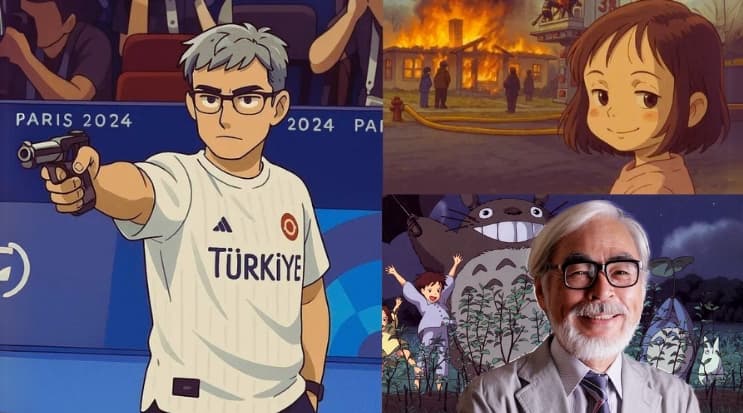
AI vs Copyright: Studio Ghibli Imitation Sparks Legal Alarm in Creative Industry
As AI tools now mimic the iconic Ghibli style, global copyright laws face unprecedented tests in the digital age
A powerful new development in AI has sent shockwaves through the creative and legal communities: artificial intelligence can now replicate the unique animation style of Studio Ghibli, one of the most revered names in the world of film and animation. This leap has reignited a global debate around copyright, creative originality, and the boundaries of technology in art.
AI Recreates the Magic of Ghibli – But at What Cost?
For decades, Studio Ghibli has enchanted audiences with its hand-drawn worlds, from Spirited Away to My Neighbor Totoro. The distinct aesthetic—characterised by fluid animation, detailed landscapes, and emotional storytelling—has become a visual signature synonymous with Ghibli’s name and legacy.
Now, using advanced AI models, creators can feed prompts or reference material into machine-learning tools and generate entire scenes or short films that visually mirror Ghibli’s style. These outputs are almost indistinguishable from the original, sparking praise for AI’s potential and panic over the future of intellectual property laws.
Legal Experts Warn of Copyright Grey Zones
Copyright law, as it stands globally, is designed to protect original expressions, not styles. While characters, soundtracks, and plots may be copyrighted, visual styles—like that of Studio Ghibli—often fall into a legal grey area.
This gap raises urgent questions:
-
Can an AI model trained on Ghibli content be held liable for copyright infringement?
-
Who owns the rights to an AI-generated image that mimics a specific creative style?
-
Should style be protected under evolving copyright law?
Legal experts argue that AI models, especially those trained on datasets scraped from the internet, may indirectly violate copyright by learning from and reproducing protected works without consent or compensation. Countries such as the US, Japan, and the EU are now reviewing frameworks to determine where AI-generated content fits in the existing IP matrix.
Global Lawmakers Begin to Respond
Recent discussions at the World Intellectual Property Organization (WIPO) and national governments have considered whether style-based copyright protections need to be introduced—particularly in response to threats against legacy animation houses like Ghibli.
If Ghibli or any creator were to challenge an AI-generated replica in court, it could become a landmark case in AI and copyright law. However, without clear legal precedent, both creators and AI developers operate in a cloud of uncertainty.
A Double-Edged Sword for Creators
While AI-generated Ghibli-style content poses a threat to original studios, it also provides new creative tools to independent artists and storytellers who previously lacked the resources for such animation quality. This democratisation of style opens up storytelling, but at the potential cost of diluting brand identity and originality.
In response, some suggest hybrid solutions:
-
Require AI companies to obtain licences for datasets used.
-
Implement blockchain-based tracking for AI-generated content origins.
-
Introduce “ethical AI use” labels or warnings for derivative works.
NYK Law Firm's View on the Matter
A legal consultant from NYK Law Firm, specialising in technology and intellectual property, commented, “The intersection of AI and copyright demands urgent global policy reform. We are witnessing a situation where innovation outpaces legislation. Clear frameworks must be drafted to protect creators while still enabling responsible AI development.”
The Road Ahead
As AI continues to evolve, pushing boundaries of creativity and authorship, the world’s legal systems must adapt just as swiftly. The Studio Ghibli case is not just about protecting a brand—it represents a larger global challenge: how to balance technological innovation with artistic integrity and legal protection.
If left unaddressed, such legal ambiguities could spell the end of copyright as we know it in the digital age.
For any enquiries or information, contact info@thelawreporters.com or call us on +971 52 644 3004. Follow The Law Reporters on WhatsApp Channels